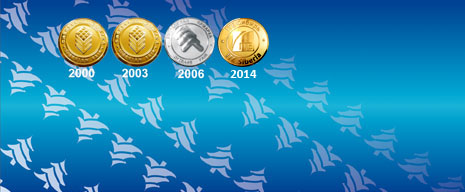 |
 |
Our teachers room
Effective Ways to Practice Orthographic Dictionary in Primary School
In the article we substantiate the necessity of using orthographic dictionary in the process of teaching the Russian language to primary school children. We propose some exercises and tasks for working with dictionaries of different types, developed in accordance with the age and psychological characteristics of younger students.
Keywords: orthographic dictionary, orthogram, methods of work with dictionary, types of tasks and exercises.
Effeitive Ways to Practice Explanatory Dictionary in Primary Shool
The article substantiates the necessity of using explanatory dictionary in the process of teaching the Russian language to junior schoolchildren. The key aim of the present article is to determine the basic methodical principles of work with the this dictionary, which is one of the most important prerequisites for forming and developing junior schoolchildren. The article introduces types of tasks and exercises being sensitive to age and psychology features of junior schoolchildren.
Educating Responsible Person: Theory and Practice
In the article we search the problems of educating students, the influence of political and economic changes on teaching younger generation, and the development of culture. The historical context of the development of educating as a specific type of activity is summarized. We propose a variant of the solution for the project task of developing responsibility, love and care of relatives as the significant qualities of a person.
Keywords: education, norms, values, culture, personality, responsibility, caring, teacher.
Effective Ways to Practice Orthоepic Dictionary in Primary School
In the article we substantiate the necessity of using orthoepic dictionary in the process of teaching the Russian language to junior schoolchildren, and propose some types of exercises and tasks to practice this dictionary, considering the age and psychological characteristics of primary school children.
Keywords: orthoepic dictionary, difficulty of pronunciation (orphoepem), methods of work with dictionary, types of tasks and exercises.
German-Language Literature at the Lesson as a Factor of Students' Socio-Cultural Competence Expansion
The article deals with the items of reader's competence formation on the example of work with the artistic text from the German-language children's literature. It also highlights the methods of information extraction, of using the text as a pretext for the development of oral speech.
Keywords: productive reading, active approach, German-language literature, family traditions, favorite holiday.
Practical Mathematics: Solving Practice-oriented Tasks
We discuss the using of practice-oriented tasks at mathematics lessons, and propose some types of these tasks about the activities of people of different professions.
Keywords: practice-oriented tasks, students' social adaptation to the outside world.
"We are Grandchildren of Glorious Victory!": The Methodology of Organization of an Extracurricular Activity
In the article we present a development of an extracurricular competition for schoolchildren.
Keywords: pedagogical technology, outdoor learning, extracurricular activities.
Solving Practice-oriented Problems at Mathematics and Informatics Lessons
We search some ways of developing ITC competences in solving practice-oriented problems at mathematics and informatics lessons. Students' skills to use their real life experience in solving mathematics and informatics problems are shown in the dynamics.
Keywords: competence-based approach, universal learning skills, practice-oriented problem.
Integrated Lesson in a Specialized Class
In the article we present an integrated lesson plan in computer science and law developed for high school students.
Keywords: integrated lesson, specialized class.
Competence Oriented Tasks at Literature Lessons
How to make a lesson of literature a source of spiritual experiences of children? How to teach them to sympathize, to experience, to rejoice? To answer these questions, we turned to the small genre – a story. Because it is possible to have time to read the story in one lesson, give the well-planned homework, and in the next lesson to consider a specific topic. In the article we present a plan of a lesson of extracurricular reading the story "Joanna" by A. Gelasimov.
Keywords: extracurricular reading, competence-oriented task.
Сайт поддерживается в Новосибирском институте повышения квалификации и переподготовки работников образования и является участником Новосибирской открытой образовательной сети